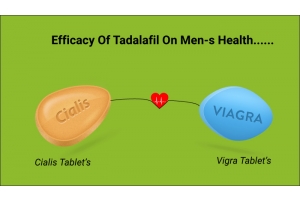Know Everything About Immunosuppressants (Part 1)
With a lot of awareness campaigns regarding organ donation, more people are getting involved— both in donating and getting the organ transplantation.
As the number of organ donors is at an all-time high, the number of transplantation cases have increased proportionally.
Hence, it’s extremely imperative for the people to know everything about the immunosuppressants— the drugs without which organ transplant would only be a failure.
The given piece enlightens about everything you need to know about immunosuppressants.
What are immunosuppressants?
Immunosuppressants are the drugs which make the ever-attacking defense system (immunity) of the body to respect the newly transplanted organs.
Our immune systems pelt attack on everything which seems foreign to them— even the life-saving organs.
The drugs mute down the effect of the immune system, and condition a secure environment so that the implanted organ may function without interruption.
What is the use of immunosuppressants?
The immunosuppressants are way more impactful than we can think. When we look closely, we discover that immunosuppressants have multitudinous benefits.
They create a working environment for the new organs by subduing the action of the immune system.
They are highly effective in treating autoimmune diseases (immune system fails to differentiate healthy and abnormal cells, and destroys healthy cells) such as myasthenia gravis, Behcet’s Disease, multiple sclerosis, rheumatoid arthritis, systemic lupus erythematosus, sarcoidosis, Crohn’s disease, etc. by bringing down the immune system to a level where they can’t attack the healthy cells.
They have a similar effect on the autoimmune inflammatory diseases like Asthma where the pro-inflammation T-cells are arrested and prohibited from their action.
The antimetabolite immunosuppressants are used as potent drugs in chemotherapy. They alter the DNA code by introducing modified nucleotides in the cancer cells and prevent the cell-division.
What are the types of immunosuppressants?
There are two variants of immunosuppressants— both used under different conditions.
Induction Medication: It’s a highly concentrated and powerful immunosuppressant medication which is used during the transplant surgery. It’s required during transplantation because that’s when the body has the maximum potential of overthrowing the external organs.
Maintenance medication: It’s a mild immunosuppressant medication which generally gets prescribed for long-term usage. It’s when the new organ is out of the potential threat of the defense system and is ready to work under the harmonious culture with the immune system.
What is the route of administration?
The route of administration depends on the bioavailability which a body requires.It’s purely decided and prescribed by the doctors.
If the new organ is unable to cope-up with the host body, the doctors might prescribe the intravenous route of medication before it gets too late.
Intravenous route has the fastest action on the body as it has the maximum bioavailability (100% drug enters into the bloodstream and doesn’t undergo the first-pass metabolism).
However, the drug is available in other forms such as tablets, oral liquids, etc.
Note: It’s incredibly essential to follow the prescribed mean of administration by the doctor because our ultimate goal is to prevent the rejection of the organs. A slight change in the dosage or negligence in scheduled medication might trigger the organ rejection and pose life-threatening adversaries. It’s also mandatory to go for the regular blood and body check-up to keep yourself updated.
What should you do if you miss the dose?
It’s advisable to follow the prescription as per guided by your doctor.In case you miss the dose, confer with your medical advisor as early as you can.
A little delay in consultancy might lead to the rejection of your organ— so, run as if you are running to save your life.
In addition to it, make sure that you don’t take the double dosage.If you have entered the next-dose period, ensure that you stick to the single dosage.
We shall cover the other details of immunosuppressants in the next section. Tune in to our portals for further medical assistance.








